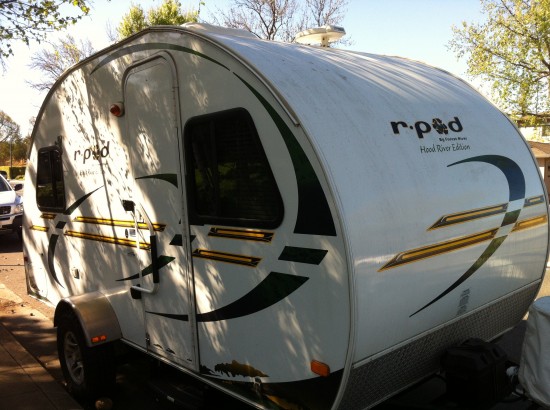































 Each year I pledge toteleworkalong with thousands of others for the annualTelework Week. Today, I worked from my rpodparked in front of my house. My rpod is my personalsmart work spaceand provides me everything I need to work at home or on the road withsecure mobility capabilitiesthat allow me to access all my meetings, applications, and collaboration tools to do my job.
Each year I pledge toteleworkalong with thousands of others for the annualTelework Week. Today, I worked from my rpodparked in front of my house. My rpod is my personalsmart work spaceand provides me everything I need to work at home or on the road withsecure mobility capabilitiesthat allow me to access all my meetings, applications, and collaboration tools to do my job.
In fact, I could have worked from anywhere and have been teleworking for the past several years.
TheTelework Enhancement Act of 2010 (Act)was signed into law on December 9, 2010. The objective is to achieve greater flexibility in managing the workforce through the use of telework. Telework programs and best practices provide agencies a valuable tool to meet mission objectives while helping employees enhance work/life effectiveness to:
This year,Telework Week 2014, was the fourth-annual global effort to encourage agencies, organizations, and individuals to pledge. A total of 163,495 pledges collectively saved$14,003,872 in commuting costs and spared the environment 9,066 tons of pollutants.
Mobile government is here -and growing. It's quickly changing the way governments increase flexibility and respond to citizens, who also want 24/7 mobile access on their favorite device.
Mobile government provides the critical capabilities to empower workers and serve citizens. However, to support the transition to mobile government and provide mobile workers the flexibility they need within a secure and robust environment, governments organization must address these key requirements:
Cisco BYODconnects and secures mobile devices for government organizations including tablets, smartphones, and personal computers with the Integrated Security Engine (ISE) to support this growing trend.
Citizens are also mobile and seeking mobile experiences to access government services.
Cisco Mobile Experience (CMX) provide capabilities to support government services for citizens including:



 Tags chauds:
unified access
Bring your Own Device (BYOD)
telework
Mobile Government
Tags chauds:
unified access
Bring your Own Device (BYOD)
telework
Mobile Government